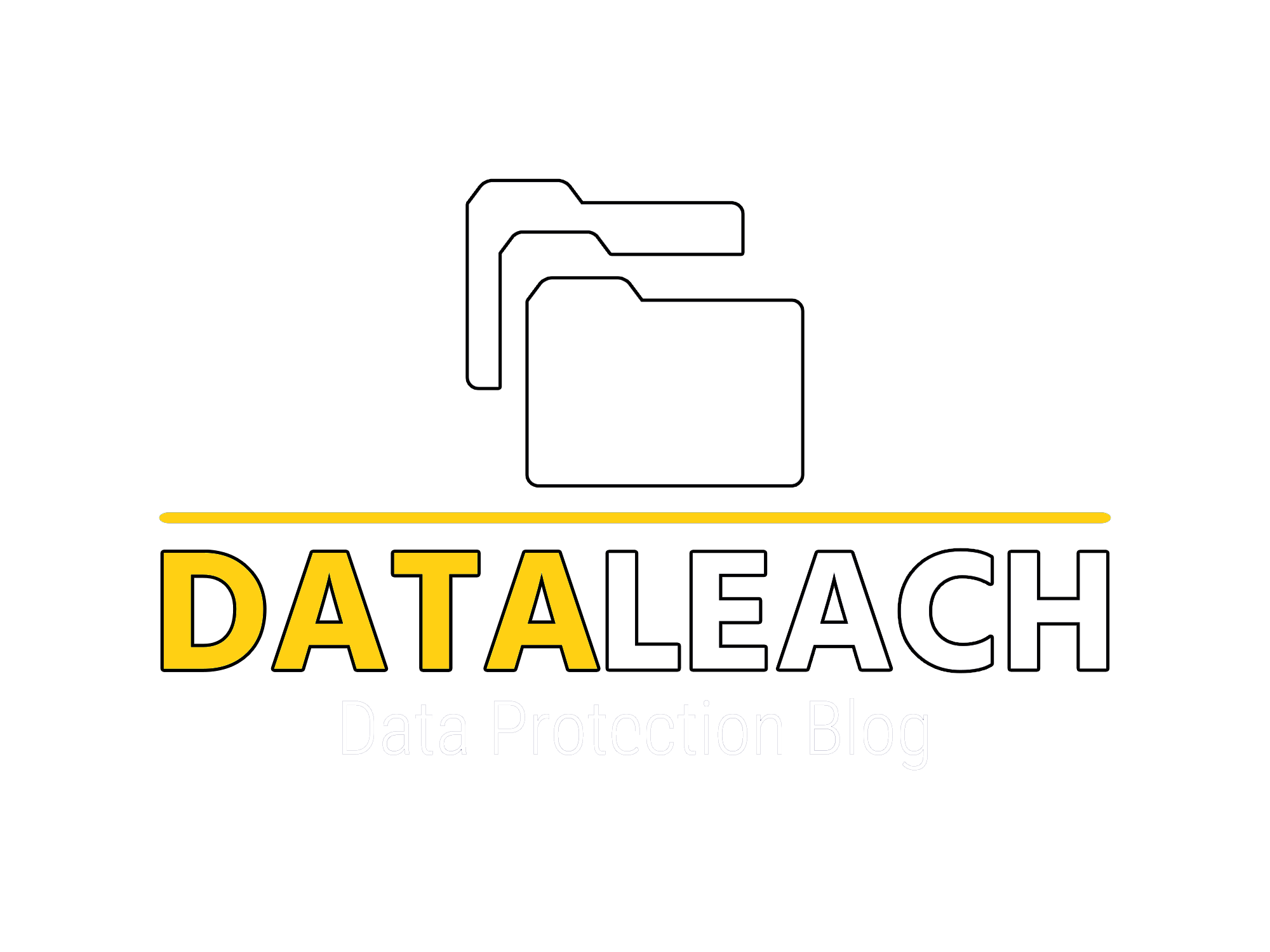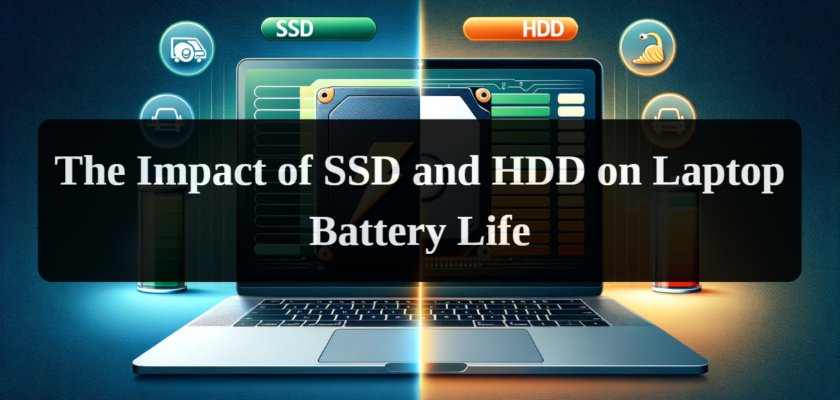This article discusses the power consumption of HDDs and SSDs and their impact on laptop battery life. Understanding the key differences between SSDs and HDDs is key to making informed decisions and understanding their role in the overall power efficiency of a notebook.
Main Characteristics of SSD and HDD
SSD (Solid State Drive): SSDs represent the newer technology in data storage. They use flash-based memory, which is faster and more reliable due to the absence of moving parts. SSDs are known for their quick boot times, rapid file-access speeds, and robust performance. Their compact size and resistance to physical shocks make them ideal for mobile devices.
Advantages of SSD:
- Speed: SSDs offer significantly faster data access and boot-up times.
- Durability: Less prone to damage, as they don’t have moving parts.
- Silent Operation: SSDs operate quietly, enhancing the user experience.
Disadvantages of SSD:
- Cost: They are generally more expensive per GB than HDDs.
- Storage Capacity: High-capacity SSDs are costlier than their HDD counterparts.
HDD (Hard Disk Drive): HDDs are the traditional storage devices, using mechanical platters and a moving read/write head. They have been a staple in computer storage for decades due to their affordability and high storage capacities.
Advantages of HDD:
- Cost-Effectiveness: More affordable, especially for larger capacities.
- Capacity: Available in very high storage capacities.
Disadvantages of HDD:
- Speed: Slower in operation compared to SSDs.
- Vulnerability to Physical Damage: The moving parts can be susceptible to damage from shocks or drops.
- Noise and Heat: They tend to generate more noise and heat.
Analyzing Energy Consumption
SSD Energy Consumption
- Lower Power Usage: SSDs are renowned for their lower power consumption, primarily due to the absence of moving mechanical components. This efficiency translates into less energy drawn from the laptop’s battery.
- Efficient Data Access: The rapid data access capability of SSDs means they can complete tasks more quickly, often allowing the drive to return to an idle state faster than HDDs, further conserving energy.
HDD Energy Consumption
- Higher Power Needs: HDDs typically require more power, attributed to their mechanical parts like the spinning platters and moving read/write heads.
- Extended Operational Time: Due to slower data retrieval and operational speeds, HDDs may remain active for longer periods, leading to increased energy consumption over time.
Comparative Studies
- Research Findings: Numerous studies have demonstrated that laptops equipped with SSDs tend to have a noticeable reduction in overall energy consumption when compared to those with HDDs. This difference can be particularly evident in tasks involving heavy disk usage.
Impact on Battery Life
SSD and Battery Life
- Extended Operation: Laptops with SSDs often exhibit longer battery life. This is because the reduced energy requirement of SSDs allows the battery to last longer on a single charge.
- Real-World Usage: In typical use cases, such as web browsing, document editing, and multimedia playback, the energy efficiency of SSDs contributes significantly to prolonged battery performance.
HDD and Battery Life
- Reduced Battery Duration: The higher energy demand of HDDs can lead to shorter battery life in laptops. This is especially noticeable in scenarios involving extensive data read/write operations.
- Usage Scenarios: In high-storage-demand tasks like video editing or large file transfers, the impact of HDDs on battery life becomes more pronounced.
Practical Aspects of Choosing a Storage Drive
For Everyday Use
- SSD: Ideal for users seeking speed and efficiency. Excellent for those who prioritize quick boot times, fast application loading, and overall snappy performance.
- HDD: Suitable for users needing large storage capacity without a high cost. Good for storing large files like movies, photos, and extensive software libraries.
For Professional Use
- SSD: Highly recommended for professionals in fields requiring rapid data access, like video editing, gaming, and software development. SSDs offer the speed and reliability needed for heavy workloads.
- HDD: This can be considered for archival purposes or for professions where storage capacity is more crucial than speed, such as graphic designers working with large image files or professionals needing extensive data backup.
For Gaming
- SSD: A preferred choice for gamers. Games stored on SSDs benefit from faster loading times, improved in-game performance, and quicker installation of updates.
- HDD: Can be used for storing a large library of games, especially when budget or storage capacity is a primary concern.
Conclusion and Recommendations
Energy Efficiency and Battery Life
- SSD: Significantly improves battery life due to lower power consumption. A sensible choice for those needing efficiency, especially in portable laptops.
- HDD: Less energy-efficient, resulting in shorter battery life. However, it remains a viable option for stationary setups or when connected to a power source.
Recommendations for Consumers
- Consider Usage Needs: Choose SSD for speed, efficiency, and better battery life. Opt for HDD when storage capacity and cost are priorities.
- Balanced Approach: Some laptops offer a hybrid setup, combining an SSD for the operating system and frequently used applications, with an HDD for additional storage. This setup offers a good balance between performance and storage capacity.
Future Trends and Technologies in Data Storage
The landscape of data storage is rapidly evolving, with upcoming technologies promising to significantly impact energy consumption and battery life in laptops:
- Advanced SSD Technology: Future Solid State Drives (SSDs) are expected to employ technologies like 3D NAND, enhancing speed and density while further reducing power consumption.
- Energy-Efficient HDDs: Innovations in Hard Disk Drive (HDD) technology aim to lower energy usage while increasing storage capacity, potentially making them more competitive with SSDs in terms of energy efficiency.
- New Memory Technologies: Emerging memory solutions like Resistive Random Access Memory (ReRAM) and Phase-Change Memory (PCM) offer the potential for faster and more energy-efficient storage.
- AI in Storage Management: Integration of AI and machine learning for storage management could lead to smarter, energy-optimized systems.
- Hybrid Storage Systems: The development of hybrid systems combining SSD and HDD features could offer a balanced approach to performance, capacity, and energy usage.
- Eco-Friendly Innovations: Increasing focus on sustainability might lead to storage technologies that are both energy-efficient and environmentally friendly.
These emerging trends and technologies in data storage indicate a future where laptops can achieve higher performance with lower energy consumption, contributing to longer battery life and a reduced environmental impact.

